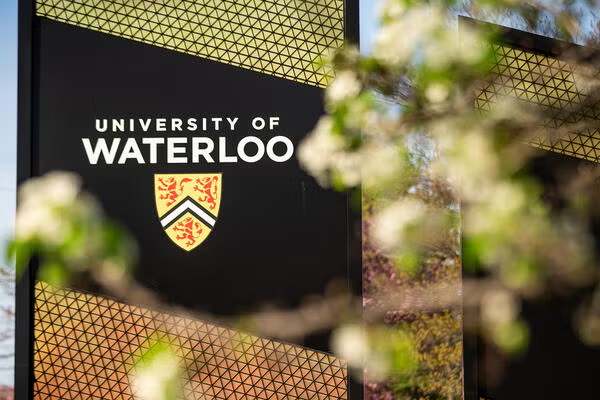
Waterloo researcher recognized for promising osteoarthritis research
Dr. Nikolas Knowles receives Stars Career Development Award from Arthritis Society Canada

Dr. Nikolas Knowles receives Stars Career Development Award from Arthritis Society Canada
By Faculty of HealthDr. Nikolas Knowles, a researcher in the Department of Kinesiology and Health Sciences, has received a Stars Career Development Award from Arthritis Society Canada in recognition of his research on improving early detection and treatment of shoulder osteoarthritis (OA).
The Stars Career Development Awards offer robust support for the early career progression of promising researchers in the arthritis community. The program rewards emerging academics with a three-year funding commitment of $375,000, matched with an additional three years of funding by the researcher’s host institution.
“Shoulder osteoarthritis is poorly understood, primarily due to the large variation in symptoms at early disease stages, and a lack of knowledge among biomechanical and imaging features across stages of the disease,” said Knowles.
“Recent advances in biomechanical and imaging technologies now allow for significant advancements to detect early disease characteristics that may allow for improved diagnosis and early treatment before reaching end-stage. My research will use these technologies and OA knowledge to provide strategies to significantly improve healthy pain-free years for individuals across the spectrum of shoulder OA, from at risk-populations, to those with established OA.”
Knowles, who joined the University in 2022, also received a grant from the Canada Foundation for Innovation’s John R. Evans Leaders Fund (JELF) this past August.

Read more
Here are the people and events behind some of this year’s most compelling Waterloo stories

Read more
Irfhana Zakir Hussain works to strengthen Waterloo’s capacity to withstand and recover from climate-related health crises

Read more
From regenerative medicine, closed-loop health monitoring, Indigenous approaches to architectural design and more, the funding supports future-focused projects
The University of Waterloo acknowledges that much of our work takes place on the traditional territory of the Neutral, Anishinaabeg, and Haudenosaunee peoples. Our main campus is situated on the Haldimand Tract, the land granted to the Six Nations that includes six miles on each side of the Grand River. Our active work toward reconciliation takes place across our campuses through research, learning, teaching, and community building, and is co-ordinated within the Office of Indigenous Relations.